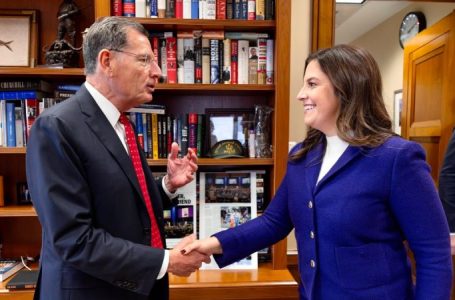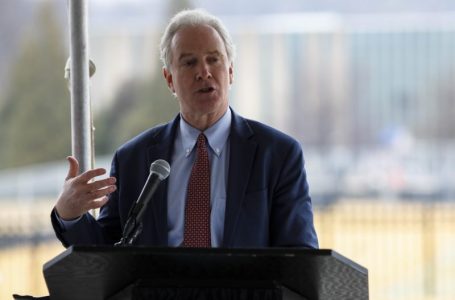Trump picks Dr. Marty Makary as Food and Drug Administration commissioner
Led by Trump, GOP candidates take polarizing stances on race and history
Across the country, Republican candidates running for office in the 2020 election are taking increasingly polarizing stances on issues of race and history. Led by President Donald Trump, whose repeated use of racially inflammatory language and relentless attacks on Black Lives Matter protests have stirred controversy, many GOP candidates are now echoing his divisive rhetoric while doubling down on displays of Confederate imagery and other symbols of the nation’s dark history of slavery and racial oppression.
In their rhetoric, these candidates have sought to stoke resentment over the growing visibility of Black Americans and calls for racial justice, painting left-leaning activists and organizations as radical and extreme. At the same time, they have embraced divisive figures from the nation’s history, such as Confederate generals, and vowed to protect public monuments commemorating them.
The Trump effect is evident in races across the country. In Wisconsin’s gubernatorial race, Republicans recently asked voters to “Defend Our History” and accused Democratic challenger Mahlon Mitchell of targeting historical statues. In North Carolina’s Senate race, Republican incumbent Thom Tillis has released an ad claiming that Democratic challenger Cal Cunningham “would rather tear down statues and monuments than get Americans back to work.” And in Virginia, Republican Senate candidate Daniel Gade has sought to make the defense of Confederate monuments and symbols a prominent issue in the fight to unseat Democratic incumbent Mark Warner.
These tactics illustrate the GOP’s deliberate strategy of employing inflammatory language and tactics to tap into deeper fears and prejudices among the Republican base. Whether this strategy is enough to carry them over the finish line remains uncertain. But the approach demonstrates the party’s willingness to embrace a language and symbols of division and hate for political gain.












